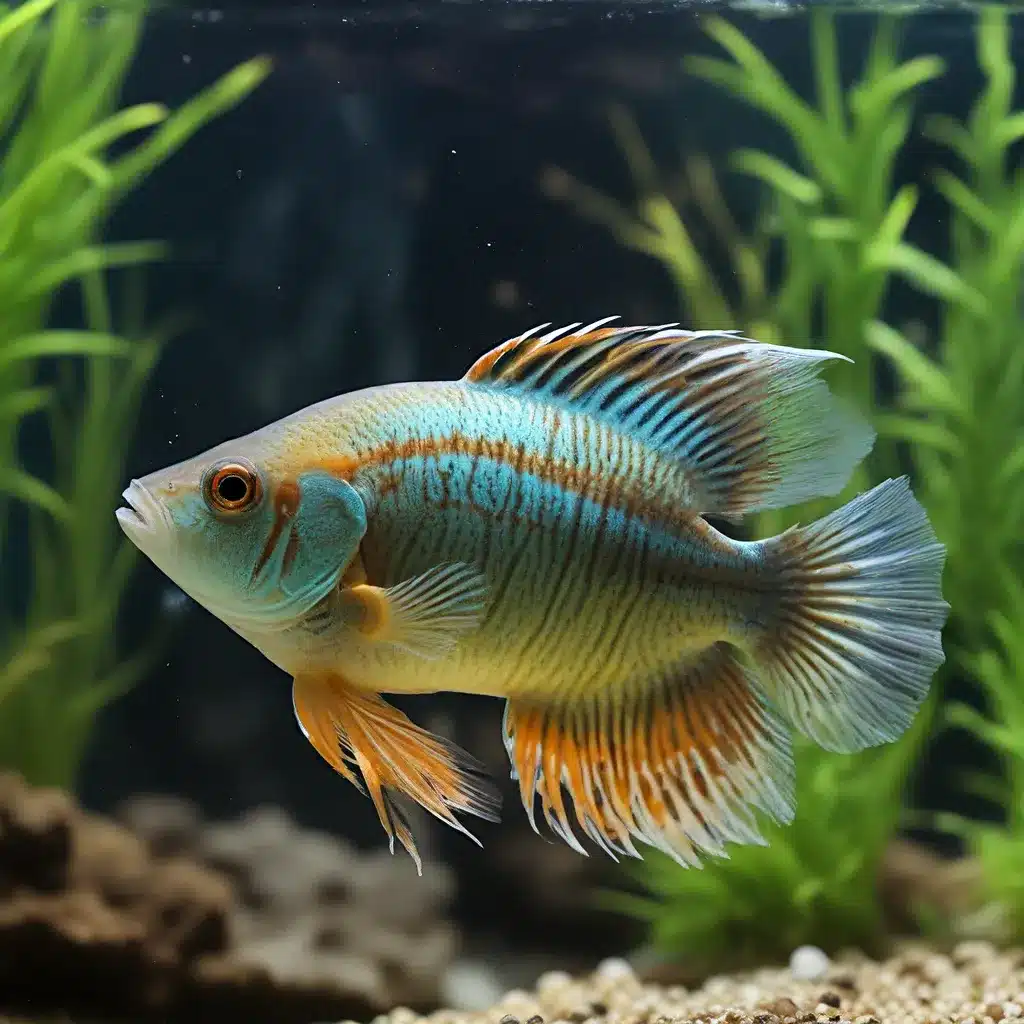
As passionate aquarium enthusiasts, we understand the importance of creating a thriving, stress-free environment for our beloved finned friends. Whether you’re a seasoned aquarist or just embarking on your aquarium journey, mastering the art of fish acclimation and stress management is crucial for the long-term health and well-being of your aquatic ecosystem.
Navigating the Acclimation Process: A Smooth Transition for Your Fish
Introducing new fish to your aquarium can be a delicate process, and proper acclimation is the key to ensuring a seamless transition. The goal of acclimation is to gradually adjust the fish to the new water parameters, temperature, and chemistry, minimizing the stress and shock that can lead to adverse outcomes.
One effective acclimation method is the drip acclimation technique. Begin by floating the sealed bag of new fish in your aquarium for 15-20 minutes, allowing the water temperatures to equalize. Next, create a slow drip system by poking a small hole in the bag and suspending it above the aquarium. Allow the water to drip into the aquarium at a rate of 1-2 drops per second, gradually introducing the new water to your aquarium over the course of 1-2 hours. This gradual process gives your fish time to adapt to the changing conditions, reducing the risk of illness or mortality.
Alternatively, you can use the floating bag method, where you simply float the sealed bag of new fish in your aquarium for 30-45 minutes, allowing the water temperatures to equalize. Once the acclimation period is complete, gently release the fish into their new home, taking care not to introduce any of the water from the original bag, as it may contain harmful substances or elevated waste levels.
Stress Management: Keeping Your Fish Calm and Healthy
Reducing stress is crucial for maintaining the health and well-being of your aquarium inhabitants. Excessive stress can lead to a weakened immune system, increased susceptibility to diseases, and even behavioral changes, such as aggression or hiding.
One of the primary causes of stress in aquarium fish is water quality. Ensuring optimal water parameters, including pH, temperature, and dissolved oxygen levels, is essential for maintaining a stable and thriving environment. Regularly testing your water and making any necessary adjustments can go a long way in minimizing stress.
Another factor that can contribute to stress is overcrowding. Providing adequate space and hiding spots for your fish to retreat, as well as maintaining appropriate stocking densities, can go a long way in reducing territorial conflicts and promoting a calmer atmosphere.
Additionally, lighting conditions can have a significant impact on fish stress levels. Sudden changes in lighting, or exposure to bright, constant illumination, can be disruptive and unsettling for your aquatic residents. Consider implementing a gradual lighting transition, with periods of dim lighting or simulated dawn/dusk cycles, to mimic natural lighting patterns.
Aquascaping for Stress Reduction: Creating a Calming Environment
The way you design and arrange your aquarium can also play a crucial role in reducing stress and promoting the overall well-being of your fish. Aquascaping, the art of creating visually stunning and functional underwater landscapes, can be an effective tool in this regard.
Incorporating hiding spots and visual barriers within your aquascape can provide your fish with a sense of security and reduce territorial conflicts. Strategically placing rocks, driftwood, and live plants can create a naturalistic environment that mimics the fish’s original habitat, making them feel more at ease.
Another important consideration is water flow. Excessive water movement or strong currents can be stressful for some fish species, particularly those adapted to calmer environments. Carefully positioning your aquarium’s filtration system and adjusting the water flow can help create a soothing, tranquil atmosphere.
Feeding and Nutrition: Optimizing Fish Health and Reducing Stress
Proper feeding and nutrition are essential for maintaining the overall health and well-being of your aquarium inhabitants, which in turn can help reduce stress levels.
Feeding schedules play a crucial role in fish stress management. Aim for a consistent feeding routine, providing small, frequent meals rather than large, infrequent feedings. This helps regulate your fish’s metabolism and reduces the stress associated with unpredictable feeding patterns.
Moreover, the quality and composition of the fish food can have a significant impact on their stress levels. Opt for high-quality, species-specific diets that cater to the unique nutritional needs of your fish. Incorporating a variety of live, frozen, and freeze-dried foods can help ensure your fish are receiving a balanced and nutritious diet, which can boost their immune system and resilience to stress.
Monitoring and Troubleshooting: Staying Ahead of Potential Issues
Maintaining a vigilant eye on your aquarium’s inhabitants and water parameters is crucial for quickly identifying and addressing any potential sources of stress.
Regularly monitor your fish’s behavior and appearance, looking for signs of distress, such as erratic swimming, loss of appetite, or changes in coloration. Promptly address any issues that arise, as early intervention can often prevent more serious problems from developing.
Furthermore, stay on top of water testing and parameter monitoring. Keeping a close eye on factors like pH, ammonia, nitrites, and nitrates can help you identify and correct any water quality issues before they become detrimental to your fish’s health.
By staying proactive and addressing potential stressors early on, you can create a thriving aquarium environment that supports the long-term well-being of your fish.
Conclusion: Embrace the Art of Stress-Free Aquarium Keeping
Mastering the art of fish acclimation and stress reduction is a crucial aspect of successful aquarium keeping. By implementing the techniques and strategies outlined in this article, you can help ensure your finned friends thrive in their new environment, minimizing the risks of illness, aggression, and premature mortality.
Remember, a stress-free aquarium is a happy aquarium, and by prioritizing the well-being of your fish, you’ll be rewarded with a vibrant, captivating underwater world that brings joy to both you and your aquatic companions.
Explore the King Aquarium website for more valuable resources, expert advice, and cutting-edge aquarium products to support your journey towards a stress-free, successful aquarium.

